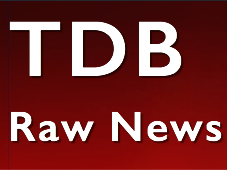‘Inevitably, leaks are starting to fill the void of official texts from the Trans-Pacific Partnership Agreement (TPPA)’, says Professor Jane Kelsey, who has been pressing for the release of final texts to allow proper assessment of the government’s claims.
The final intellectual property chapter of 60 pages was posted on Wikileaks today, accompanied by several technical analyses. It will take time for the New Zealand implications to be fully assessed by intellectual property specialists, although some have already criticised the impact of extending copyright to life plus 70 years, which is in two steps.
Two points stand out as showing the success of public pressure brought to bear on these negotiations.
‘We can now see the compromise wording on new generation biologics won by the Australians, on which New Zealand will rely’, Kelsey said. ‘Under QQ.E.20 Big Pharma’s monopoly is either at least 8 years, or ‘effective market protection’ for at least five years, through other measures, and recognising the contribution of market circumstances to effective market protection, ‘to deliver a comparable outcome in the market’.
There is no guarantee that this exception will survive the backlash already evident within the US Congress, and US moves to rewrite the intention of the vague text by refusing to certify New Zealand’s compliance until we adopt an equivalent of 8 years protection.
While the 8 year threshold is a victory for the international campaign against the orignal proposal of 12 years, health specialists warn the real gain for Big Pharma is to bring biologics within the agreement. It will then build on that precedent. Worryingly, there is an inbuilt review of the biologics provision in 10 years. Biologics is also very broadly defined in a way that will catch most biologic medicines, when countries were seeking the right to decide their own definition.
Second, Professor Kelsey notes ‘the New Zealand government has scrambled to cover its back in the Waitangi Tribunal claim with an Annex that wasn’t in previous leaked drafts. That gives New Zealand some flexibility in meeting the US demand that we adopt the UPOV 1991 convention on plant variety rights.’
The Crown insisted in the Waitangi Tribunal hearing that the Treaty of Waitangi exception used since 2001 would effectively protect Maori rights under the TPPA. Professor Kelsey notes that the new Annex implicitly admits it does not.
‘The Annex is an improvement, but still problematic, as will be argued before the Waitangi Tribunal when it reconvenes to consider the TPPA claim. It also doesn’t address potentially similar problems in the requirement that New Zealand adopts the Budapest Treaty on Microrganisms, to which we are also not a party.’






This TPPA is becoming nothing but a large very complicated hornets nest only made for navigation for corporate lawyers.
We don’t need yet more layers of rules and statutes here as it was supposed to be a “free Trade” agreement but looking more now like a hornet’s nest.
The “Intellectual Property Rights” section, is one of the core elements of the agreement. IPR means highly protectionist measures to ensure the exorbitant profits of American and international pharmaceutical and media corporations. That is anti-free trade. It is extreme protectionism in the interests of very wealthy and powerful parts of the corporate system. The TPPA is not a free trade agreement, its not about free trade. It is not really about trade at all, and as most people are opposed to it, its written in secret, so every word in “free trade agreement” is false.
We are being shafted by big business. The whole thing stinks!
Big Pharma is nothing more than a continuation of the Nazi killing machine. Their drugs are not designed to cure as there is no profit in a healthy nation.
The intellectual property section of the agreement is in all a total affront to the very nature of humanity. There is no recognition of the present and existing technology, as developed and touted by Google, which allows a human interface with the cloud.
http://weeklyworldnews.com/headlines/21991/google-introduces-brain-chip/
Needless to say, what goes up must come down- as information is drawn from Google so in exchange any intellectual property of the implantee automatically becomes the intellectual property of Google.
This in itself should null and void any notion of copyright.
To put it bluntly, corporations can access brains.
How much more draconian can this agreement become?
Comments are closed.